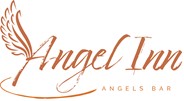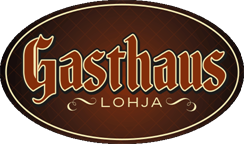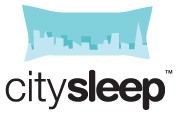During a time of economic uncertainty as a hotel operator one thing out of your control are the economic conditions, but what you can do is implement a marketing plan to increase sales and hotel profitability by effectively managing your cost of sales and channels of distribution.
The volume of online business today driven into hotels via OTAs (Online Travel Agents) has shown to be both significant in its size and value to hotel operators. As an independent hotel operator there is no way to match the OTAs distribution or brand awareness. So most hotels are forced to accept the high commission costs that come with these OTA relationships as a necessary evil.
According to Morgan Stanley in the past few years, the OTAs' share of bookings has increased for the larger corporate chains to 6% in 2015 and was recently approaching 8%, taking anywhere from 10% to more than 20% commission - the highest of any booking channel. So recently the larger brands have stepped up their efforts to book more guests directly.
Now is a good time for hotel operators to get smarter, to employ a more proactive direct booking strategy using a combination of marketing and available technology. This will increase the potential to earn higher revenue and reduce the cost of doing business. Any reduction in the OTA commission costs will go directly to your bottom line as profit. Plus often the booking value of a direct reservation can be higher than that of an OTA booking – they are more likely to book a package or an upgraded room type, as well as add-ons.
First of all there needs to be an assessment of the cost and share of business that your various distribution channels contribute. The idea is to optimize the distribution channel that costs you the least amount and provides the highest revenue and profit. Focus on where you’re trying to get your business from and what is the right process for actually driving business from those most profitable channels.
Consumers in their “deal mentality” intrinsically feel that they want to have a direct relationship to cut out “the middle man”. A hotel website is the ideal platform to do this. It should yield the lowest cost of customer acquisition because you are having a direct interaction with the customer, which should also lead to a fruitful long-term relationship.
Nonetheless, intermediaries such as OTAs and the GDS (Global Distribution System) do make a positive contribution. These are dealers who act as a link in the chain of distribution between hotels and guests, providing exposure to a wider range of customers, bringing demand during periods of low occupancy plus customers also use them to make research.
Each online distribution channel should play a different role in your hotel marketing program, culminating in a healthy mix of channels, rather than an operator sitting back and relying solely on one, for example the OTA. Giving the majority of your room inventory to one channel may help in the short term but it will make it difficult for you to manage the business going forward on your own terms.
A distribution channel overview
Your website should reflect the hotel’s personality, pinpointing what makes it different using interesting content and striking imagery. Investing in online marketing improves your search performance and search engine ranking. Improving your SEO (Search Engine Optimization) performance will help achieve higher conversion rates by providing qualified website traffic, visitors searching for particular requirements that your property meets. Savvy consumers are now more specific in the keywords that they use for search. Long-tail keywords will include products and services that are important to them, as well as relevant touristic landmarks, and work-related destinations, which need to be considered when you are creating content for your website.
Online Travel Agents as a channel tend to have the highest cost of sales for hotels, but they have the capacity to boost occupancy and deliver reservations when needed. OTA's don’t typically share customer data with hoteliers, so any effort to re-market to these guests is difficult. Additionally, an OTA guest may be motivated by price, stay less frequently and not be so interested in engaging directly with the hotel. An OTA has the ability to “cast a far wider net” to get your property in front of potential customers in their booking process that you would not have the ability to do. For example guests loyal to the OTA brands or may be customers from feeder markets to your property that you have no representation in.
The GDS distribution channel can have a significant impact for hotel operators that receive demand from corporate business travellers, who tend to pay a higher average room rate.
A hotel’s website isn’t the only direct channel that hoteliers should focus on. Hoteliers need to be set-up to receive walk-in business or phone calls for last-minute bookings.
Below we have provided twenty tips on how to be proactive in developing an effective marketing strategy to grow your direct bookings, and manage your OTA business:
- Arguably one of the most effective ways to build rapport with customers is to focus on guest satisfaction – something only you can do whilst the guest is at the property
- Try to understand why the guest chose your property and the booking journey they took to understand how you can influence it
- Capture the interest of customers early in their search behaviour rather than by competing with OTAs at the booking stage by creating content on your website around local attractions, events, service, etc.
- Use your social media skills to reach out and engage with a targeted audience, build your unique personality, brand awareness and start a conversation with your followers
- Elevate the reasons to book directly with your property, make sure that they are visible on your website and that the site is responsive to deal with visitors using a mobile to do their research
- Mobile is becoming a more and more important aspect of the booking process. For a lot of hotels, mobile is a critical touch point with the guest because it’s often the first
- The fewer types of rates you have on display, the better. This makes comparing different offers to each other easier, so your guest knows that they are getting the best deal with booking direct – use text such as “best price guarantees and savings” to get the offers to stand out
- Consider opportunities to merge with other independent operators to increase scale to help in negotiations
- Offer additional ancillary services or rewards that you provide only to those guests that book direct
- Employ sound revenue management techniques to make sure that direct bookers get availability of rooms during peak periods, and guests should always be able to get the best deal direct
- When looking at your demand you need to be looking ahead 4-6 months to be able to plan properly
- Help customers understand what options are available, helping in the discovery process as they figure out what they want to buy, tell them what you won’t charge them compared to an OTA and show and link to relevant guest reviews
- Provide a direct booking experience whether on a mobile or desktop that should be an easy-to-use, engaging customer experience for example like HappyBooking
- Guests do research on mobile and often make their booking on desktop – so have technology that provides a great customer interface
- Exclusively through your website provide access to your knowledge and local expertise to help direct bookers
- Build a database of email addresses and social media followers who have given permission for you to communicate with
- Have an annual distribution strategy that says where you will source reservations from that are most profitable over the course of the year as each channel is valuable at different times
- Look at overall business available in the market, the competitive positioning of your property, location and how your hotel appeals to different sources of business to understand how to develop your revenue management approach
- Once you have identified your best selling room types, consider closing these out earlier on OTAs so that guests looking to book these have to book direct
- Remember when a guest makes a direct booking, you gather valuable information about them, their geographic location, age profile, and which device they made the booking on, etc.
Take Away
To make your job easier follow these steps:
- Analyse reservation performance by channel to find which is the most profitable one
- Ensure that the best rate is offered only to those guests that book direct
- Make it visible why a potential customer should book direct
- Invest in technology to enable you to manage direct bookings
- Protect your high demand dates by not giving all your inventory to OTAs
- Ensure you are making your website responsive, user friendly and full of interesting content
- Focus on providing a excellent guest satisfaction, while the guest is at your property
- Always consider the mobile and its use for research and booking
- Know why guests are booking your hotel and reassure them that their best interests are always front of mind
- Update your revenue management skills to be able to manage your distribution channels
HappyBooking is first and foremost a property management system. That means they help you with the boring admin and automate tedious tasks giving you more time to monitor your online reviews and interact with customers. On average customers can get back up to 10 hours per week – think what you could do with that extra time!
HappyBooking have always focused on creating a user-friendly booking system to help property owners improve their revenue performance, and generate more profit by reducing costs with direct bookings rather than going through a third party. Take a quick tour to see how it works - click here.
Our guest blogger is John Kennedy.
John is a hospitality consultant, dedicated to helping increase revenue through marketing, revenue management and efficient operations. www.kennedyandersson.com
Image source: www.freepik.com



